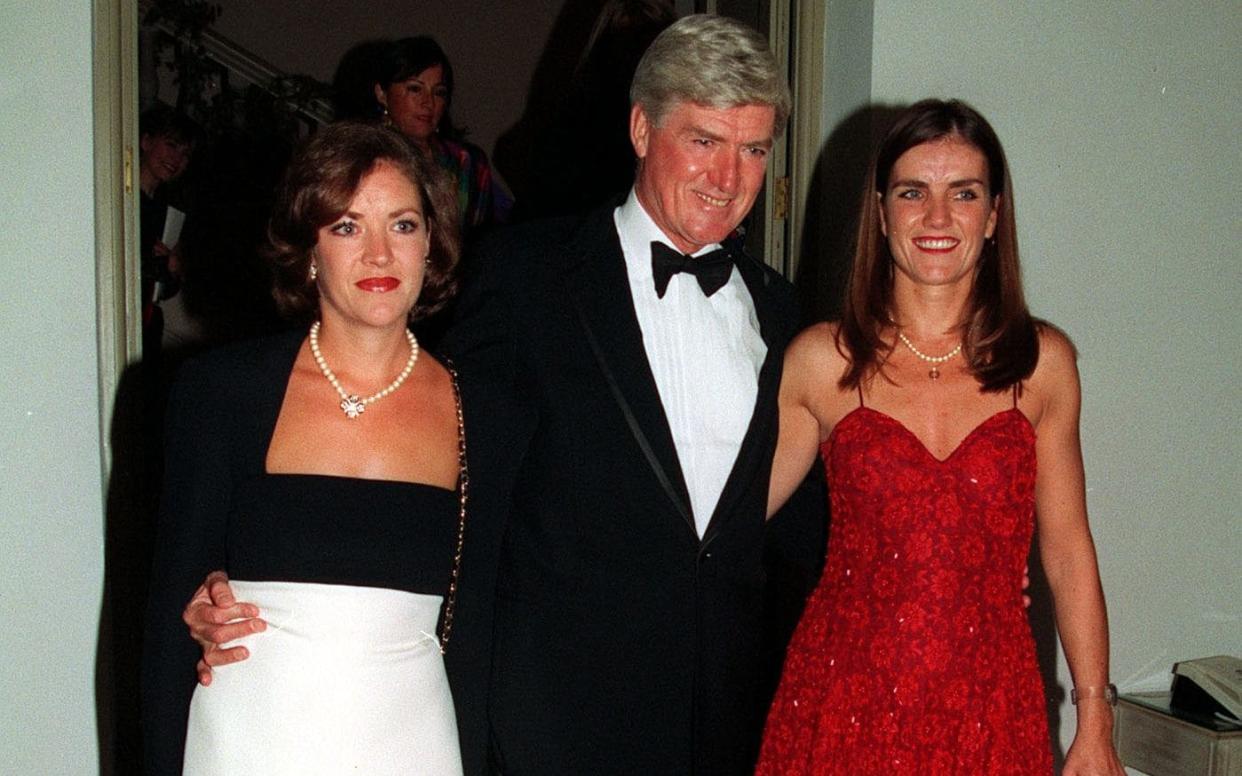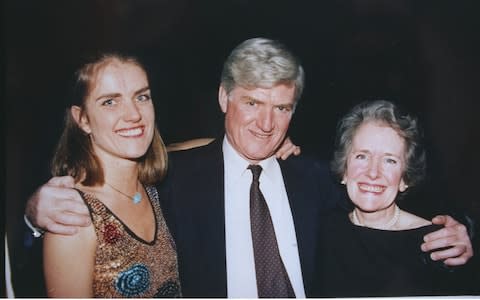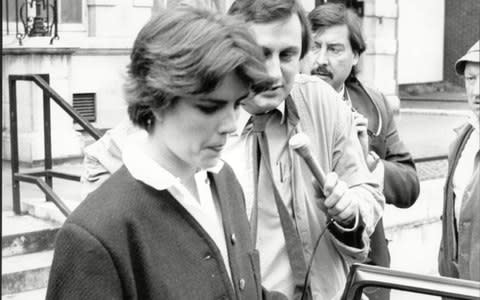Mary Parkinson, the troubled elder daughter of Tory grandee Cecil Parkinson, is found dead at home

The eldest daughter of the late Tory grandee Cecil Parkinson has been found dead at her home nearly two years after the death of the father she idolised.
Mary Parkinson, 57, had led a troubled life, spiralling into the depths of drug addiction and prostitution and struggling to cope when it emerged that her father, the millionaire former Conservative Party chairman, had fathered a lovechild with his secretary.
She had more recently reconciled with Lord Parkinson, whom she was said to adore, and had been clean of drugs for decades.
But his death, aged 84, from cancer last January triggered a renewed struggle for the already fragile Miss Parkinson.
A close friend, who saw her just last week, said: “She had become stick thin and very frail.
"She was very depressed, but she had been that way before and always pulled through in the end. Maybe her latest illness had weakened her that much that she just could not do it any more.”

She is understood to have been found dead at her Victorian terraced home in Wandsworth, southwest London, where she lived alone, on Sunday evening.
The alarm was raised by a neighbour who broke into her home and contacted the emergency services. It is understood that the same man broke into the property with concerns over her welfare in September.
A window was boarded up at the property yesterday and neighbours described the frantic attempts to break in and save her.
Keith Edwards, 69, who lives several doors away, said: “I know she has been in and out of Queen Mary in Roehampton having psychological treatment.

“She was very depressed following the death of Cecil Parkinson. She could be friendly at times, but she was unhappy.”
In September the Metropolitan Police launched an appeal for information about her whereabouts after she disappeared from her home, stating that they were “very concerned” for her welfare. She was later found in East Sussex.
Miss Parkinson had led enjoyed a privileged upbringing alongside her younger sisters, Emma, now 56, and Joanna, now 53, excelling at sports such as lacrosse, tennis and horse riding.
But her problems began as a teenager, when she developed anorexia at the age of 14. By the time she got to university, she quickly became addicted to drugs and is said to have nearly died three times after taking heroin.
Her parents spent years and many thousands of pounds trying to help her, taking her to clinics and treatment centres. Her mother, Lady Ann Parkinson, even founded a charity, Action on Addiction, whose patron is the Duchess of Cambridge, in a bid to help her but she soon turned back to drugs.

She was once being arrested for solicitation and attempted suicide several times.
At their wits end, her parents eventually threw her out of the family home in 1987.
Miss Parkinson once said that her problems stemmed from the pressure of being Cecil Parkinson’s daughter. "I was the eldest daughter and I was very bright," she said.
"I wanted to be successful and I wanted to be the best in his eyes, as any daughter does. There was a lot of pressure on me.”
She eventually kicked the drugs habit in 1990 and reconciled with her father.
But his death hit her hard and she began exercising obsessively, focusing particularly on yoga, developing anorexia and depression.
Her friend, who did not want to be identified, said: “Over the years Mary had told close friends about the rift with her family after the publicity about her father's affair with his secretary and their lovechild Flora Keays.

"She grew up in a privileged life, but she ran away from it all into a life of degradation - cocaine addiction paid for with prostitution in a crack house in Notting Hill.
"She talked about terrible rows with her family. When she was at her lowest ebb, they could not bear to hear about her circumstances. It was a family friend who eventually organised her rescue and got her out.of the drug den.
"She worked hard to rebuild her life and has been clean for decades. But she was a very troubled woman. Underneath it all, she was a lovely human being and kind to others even when she was in a bad way.
"I shall miss her very much. My only hope is that she is now at peace."
Lord Parkinson was a Cabinet Minister in Margaret Thatcher's government and tipped to succeed her until news broke of his 12-year affair and Flora’s birth in 1983, when Miss Parkinson, the eldest of his three other daughters, was 23.

He resigned as trade and industry secretary but secured a gagging order, barring Miss Keays from talking about Flora until her 18th birthday.
When that day came, in 2002, his daughter told a newspaper: “The hardest part is not being able to see my dad. It's so upsetting that I try not to think about it too much. I would like to see him. If he loved me, he would want to see me and be in my everyday life.”
Lord Parkinson was allowed to return to the front benches in 1987, as energy secretary and then transport secretary, before moving to the Lords and serving under William Hague as party chairman.
Shortly after his death, it emerged that his assets, including a £2.25million listed mansion in Hertfordshire, had been put into a trust for his wife Ann and their three grown-up daughters Mary, Emma and Joanna.
He left nothing for Flora, who suffers from Asperger’s syndrome and had an operation to remove a brain tumour when she was four, claiming in his will that he had made “separate provision” for her.

Her mother revealed in April this year that she was destitute and was taking legal action against Lord Parkinson’s estate in an attempt to get proper financial provision for her daughter.
Lady Parkinson, 82, sold the family home near Potters Bar, Hertfordshire, last year and could not be contacted for comment on her daughter's death.
Mrs Parkinson's sister, Joanna Cadzow, declined to comment when contacted by the Telegraph.
Scotland Yard said they had been called to an address in Battersea shortly after 9.30pm on Sunday night following reports of concern for the welfare of a female resident.
A spokesman said: “Officers attended along with London Ambulance Service colleagues and discovered a female, believed to be aged 57. She was pronounced dead at the scene.
“At this early stage the incident is not being treated as suspicious.”

 Yahoo News
Yahoo News 
